That is our job! Especially now.

by Jürgen Barthel

That is our job! Especially now.

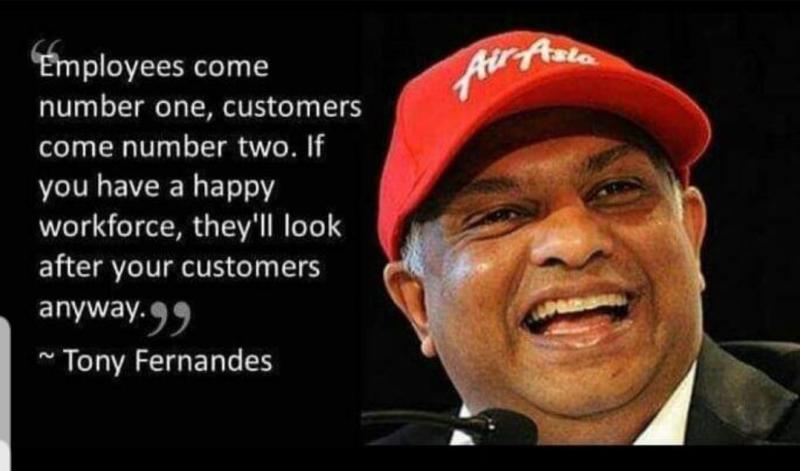
For quite a while, I am stumbling over the issue of the common investor understanding of Corporate Social Responsibility (CSR) and their implication that it is the same as Sustainability. Which it is not.
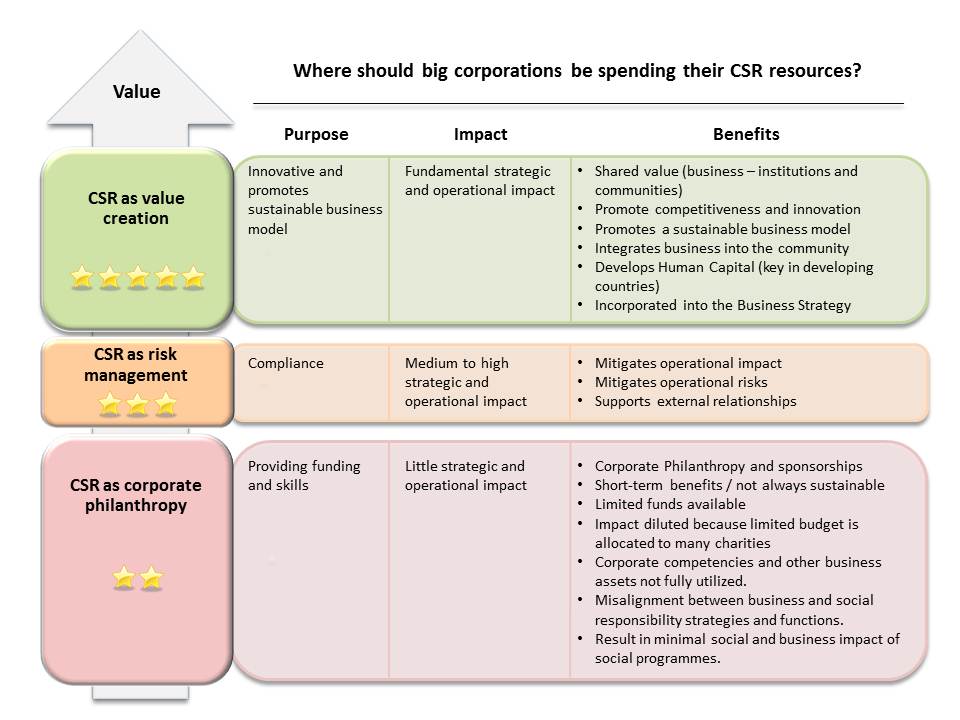 Reading the Wikipedia page about it, they see it as a high-level code of conduct for large, international organisations. And focused on the representation of the company towards its customers. I think we must step back and make a change. A change to how we must understand corporate social responsibility. And not just, but especially in times of Corona, this is not a nice to have, it is a desperately needed definition update!
Reading the Wikipedia page about it, they see it as a high-level code of conduct for large, international organisations. And focused on the representation of the company towards its customers. I think we must step back and make a change. A change to how we must understand corporate social responsibility. And not just, but especially in times of Corona, this is not a nice to have, it is a desperately needed definition update!
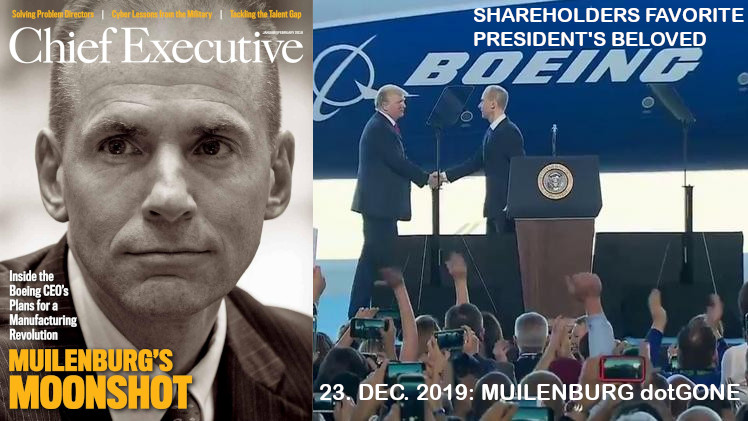 If you focus on shareholder value, human resources and only your own, personal profit, you end up in a deep, dark pit. Sometimes, like Boeing’s Muilenburg and others who have been on the Olymp, just for that much deeper a fall. Examples aplenty.
If you focus on shareholder value, human resources and only your own, personal profit, you end up in a deep, dark pit. Sometimes, like Boeing’s Muilenburg and others who have been on the Olymp, just for that much deeper a fall. Examples aplenty.
In most cases, it’s like the recent decline in employee morale at Lufthansa, Carsten Spohr shelving Germanwings in a “strategic” and likely necessary move, but without the touch to understand the emotional repercussions on overall staff. Them having very well in mind the fate of Contact Air, Cirrus Airlines, but also Air Berlin with their last CEO a Spohr-lackey sent to liquidate the airline. And sure, there is quite some green- and whitewashing involved by such CEOs, having their own “sustainability” and “CSR” departments.
So what is “CSR” truly about? Or should be? Like with all such “definitions”, there has been a basic idea. Then it was abused to abstraction to #whitewash investments and make them attractive to investors.
To understand the original idea behind corporate social responsibility you simply need to read it. It is everything about the social responsibilities in corporate (organisational) environments. Is it social to support sustainability? Definitely. But not only. Those definitions applied to CSR crippled the original definition. Then the #whitewashing continued. As Wikipedia refers to, there’s a cost-benefit analysis. Don’t get me wrong, it makes sense. But then let’s name it – it’s a business model, has nothing to do with philanthropy.
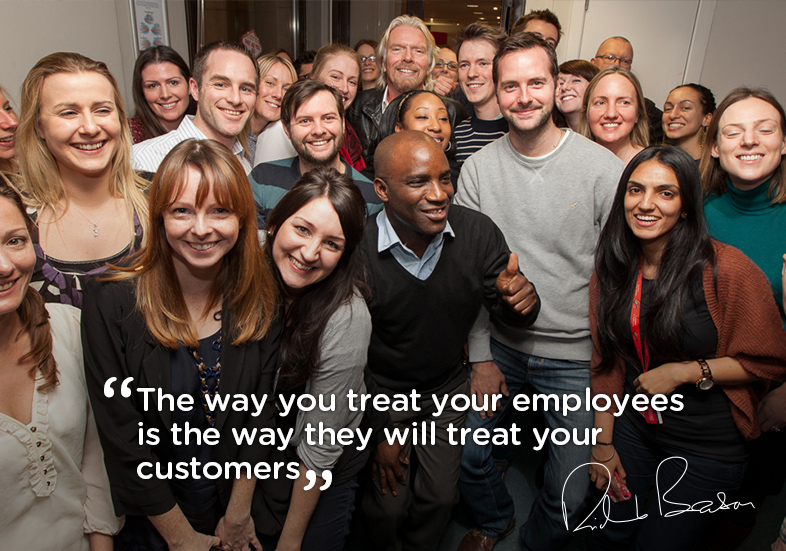 Corporate Social Responsibility starts with your immediate environment: Your own organisation!
Corporate Social Responsibility starts with your immediate environment: Your own organisation!
When I started my aviation career with American Airlines under Bob Crandall, we were a family. My friends at Delta and Pan Am envied us for that family spirit, called us “brain washed”. To date, we were not brain washed, but professionally motivated. Something I miss since the button counters took over. Something Carolyn McCall at easyJet understood and (as I predicted) what left easyJet with her. The top management understanding that humans are no resource and that motivated staff and service are invaluable assets!
 Aside the example i used on the different approaches between Alex Cruz at British Airways and Branson’s Virgin Atlantic, there was a noteworthy post by Tony Fernandes of Air Asia. Please read it, this is only a key message out of it:
Aside the example i used on the different approaches between Alex Cruz at British Airways and Branson’s Virgin Atlantic, there was a noteworthy post by Tony Fernandes of Air Asia. Please read it, this is only a key message out of it:
“What always drove us was our people, our AllStars . It’s what’s drives us every time we are in a Crisis. We must do whatever to protect their jobs.”
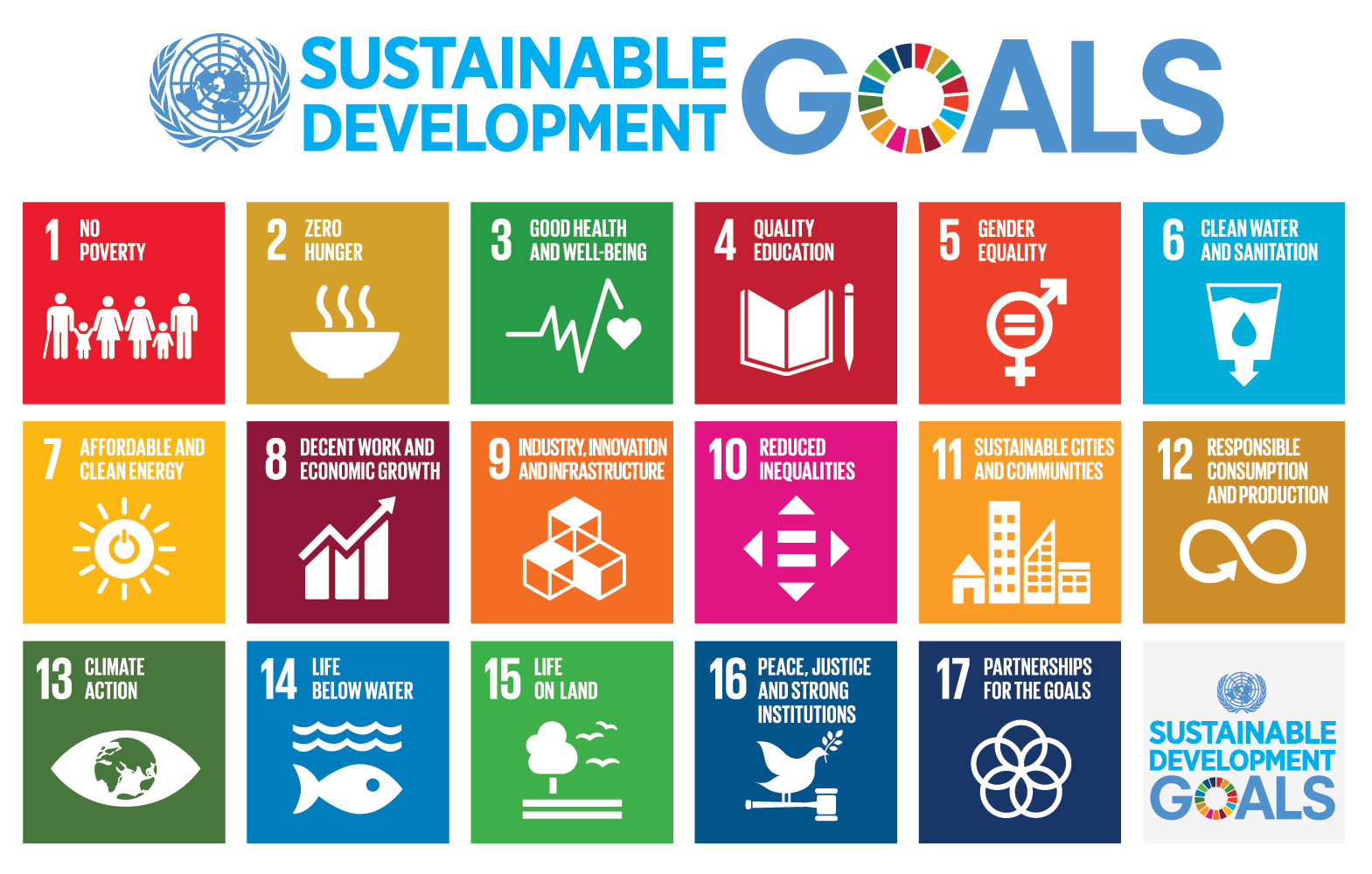 Co-Founder Ndrec coming from a military background, me grown up with American military and starting my career with American, it was clear from the very start, that developing such a better airline, aside profitability ☑ (check), USPs ☑ (check) and sustainability ☑ (check), we must take care of “ours”. What we considered and consider true “CSR”. From the outset, we such looked at staff management and banned to wording of “Human Resources” and its shortened version “HR”. And we looked at the locations we plan bases for, beyond the company, but the impact such development has to the communities “we serve”.
Co-Founder Ndrec coming from a military background, me grown up with American military and starting my career with American, it was clear from the very start, that developing such a better airline, aside profitability ☑ (check), USPs ☑ (check) and sustainability ☑ (check), we must take care of “ours”. What we considered and consider true “CSR”. From the outset, we such looked at staff management and banned to wording of “Human Resources” and its shortened version “HR”. And we looked at the locations we plan bases for, beyond the company, but the impact such development has to the communities “we serve”.
 It might be surprising to the bean counters (accountant-mindset “managers”) that all of our related “cost centers” turned out to be no just driving loyalty, but to be true profit centers and vital in our attempt to melt the cost factors to competitive levels. As a start-up, investing into all the company’s assets, you must be competitive against all those large, established companies like easyJet owning around 70% of their fleet, cost down to maintenance, with roughly 25% being paid off and around 5% being leased to cover ad hoc opportunities (like taking over Air Berlin routes). And while now being a “burden” in Corona times, airlines cannot drop out of leasing either, so the cost still is there. But those airlines can secure credits based on their (aircraft) assets. To develop profit centers that allow to cut down the cost to competitive levels such ain’t a mere strategy, but a vital need.
It might be surprising to the bean counters (accountant-mindset “managers”) that all of our related “cost centers” turned out to be no just driving loyalty, but to be true profit centers and vital in our attempt to melt the cost factors to competitive levels. As a start-up, investing into all the company’s assets, you must be competitive against all those large, established companies like easyJet owning around 70% of their fleet, cost down to maintenance, with roughly 25% being paid off and around 5% being leased to cover ad hoc opportunities (like taking over Air Berlin routes). And while now being a “burden” in Corona times, airlines cannot drop out of leasing either, so the cost still is there. But those airlines can secure credits based on their (aircraft) assets. To develop profit centers that allow to cut down the cost to competitive levels such ain’t a mere strategy, but a vital need.

As in all my posts addressing moral and ethics, I turn back to my father, who told me that you got to be first and foremost someone you see in the mirror and you like the guy. Secondly, despite all mistakes you do, you must keep your sheet clean. Your sins will backfire on you.
So you got to start with the good old (wo)man in the mirror. Then think about “yours truly”, family, employees. Then look after the extended community, local and work. If you look at all that, sustainability will be a “natural development” for you.
Food for Thought
Comments welcome!

This article has originally been published on my LinkedIn page (moved 2020-02-11)

“2020 will unlikely be able to keep up with 2019. But more speaks for shares than the lack of alternatives”
I’m kind of p***ed off by that statement by German DWS’ CIO and his conservative, visionless analysis headline. It reflects exceptionally well on German investors and asset managers (yes, I also talk about those banks) believing in risk-free, high-return investments. ECB frequently accused German banks to not understand the reason for their negative interest: To make deposits at ECB unattractive and force the banks to invest into companies, ideas, visions. Instead to such do their own job and a proper due diligence on good ideas, they focus to co-invest after others did the job, on “established models”, investing into aircraft available in surplus (A320/B737). Or in shares, as there would be no alternatives. Yes, if you have blinders on, you might be right.
Bold investments? Investing into sound ideas and business concepts developed by seasoned managers? Not in Germany. Nor much in Europe. Invest in shares, for the lack of alternatives? Or for the lack of vision? Blinders.
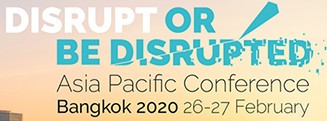
It’s our experience seeking funding for Kolibri.aero. A disruptive aviation business concept. Different. It’s called “USP”. It’s not “me too”. If you know investors that are open to vision, change and “something new”, please refer them to the Kolibris. Or me.
Published by
| Jürgen Barthel Think Outside the Box |
8 Articles |
German DWS (asset management) says shares are must buy because they lack an alternative. How wrong can you be? European Central Bank gives negative interest to promote investment into entrepreneurship. German banks park the largest amount in ECB instead of reinvesting.
#whatsyourusp #thinkoutsidethebox #cognitivedissonanceresolution #investinchange #investmentstrategy #riskmanagement

Recently, I attended the ISHKA conference Investing in Aviation Finance: Germany in Munich where one session addressed Why are airline bankruptcies still happening in a booming environment?
There are some, very few, very common reasons. And auditing airline business plans, start-ups and established, I keep raising the same questions.
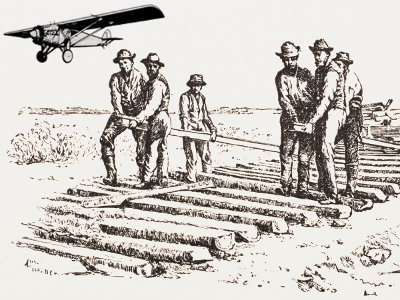 Back in the 90’s, I became the honorary member of the Airline Sales Representatives Association in Frankfurt. Aside the narrow-minded thinking of sales managers denying to understand that the emerging Internet was about sales channels, it kept and keeps bugging me, that they focused on their “sales channels”, denying responsibility for the new channels, as they had to be handled “by others”. In the beginning and to date, many if not most airlines have no personal e-Mail-contacts for their customers, be it travelers, travel agencies or online portals. The same applies to their smartphone numbers.
Back in the 90’s, I became the honorary member of the Airline Sales Representatives Association in Frankfurt. Aside the narrow-minded thinking of sales managers denying to understand that the emerging Internet was about sales channels, it kept and keeps bugging me, that they focused on their “sales channels”, denying responsibility for the new channels, as they had to be handled “by others”. In the beginning and to date, many if not most airlines have no personal e-Mail-contacts for their customers, be it travelers, travel agencies or online portals. The same applies to their smartphone numbers.
My former boss Louis Arnitz used a historic lesson to explain the change we faced converting FAO Travel, a “classic” business travel agency into i:FAO, the first European business travel portal. In the 19th century, rail companies built the railroads of America. Replacing the Pony Express. Then came those crazy flyers, “aviators”, in their small machines transporting mail. To date rail and air travel are not “connected” (very few exceptions). Because the managers understood the building of steel railroads as their business. Not the transport of people. And they still focus on the wrong priorities. Airline and Rail managers alike.
11 years ago, I wrote about the revival of the sales manager.
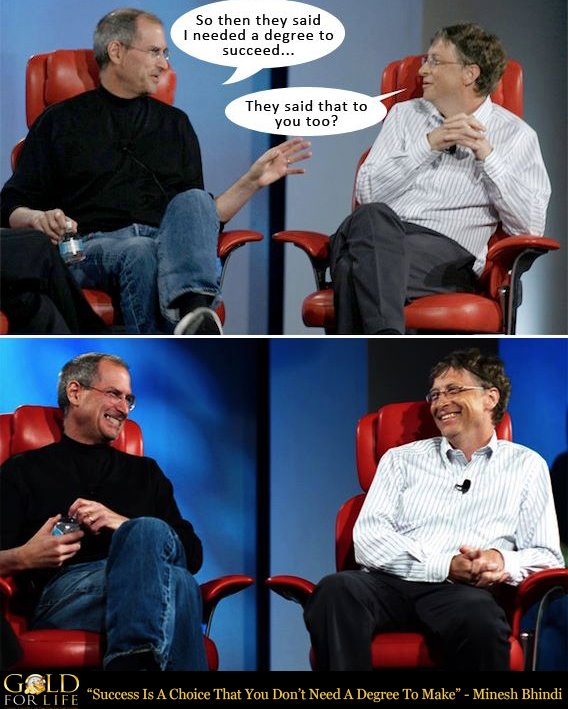 Speaking about Sales Managers ignorance to the cost of their airline’s operation, I found the fish stinks from the head first being a true proverb. I’ve met too many investors, airline managers, airport managers, not understanding the cost involved. Then they try to compete on the price with the large, established airlines. I have no idea, what those managers learned, I heavily doubt the quality of university education…
Speaking about Sales Managers ignorance to the cost of their airline’s operation, I found the fish stinks from the head first being a true proverb. I’ve met too many investors, airline managers, airport managers, not understanding the cost involved. Then they try to compete on the price with the large, established airlines. I have no idea, what those managers learned, I heavily doubt the quality of university education…
The recent failure of Ernest is a “classic”. They take little money, rent Boeing 737 or Airbus A320 family airplanes, in case of Ernest 1 A319 and 3 A320. Then they buy software licenses (COTS, Commercial Off The Shelf). They buy ground handling and maintenance. Something I learned studying Whole Sale & Foreign Economics 35 years ago: If you outsource, it is either more expensive or you they safe from the service levels they provide.
Something I keep telling about consulting. If you need someone with special knowledge for a short time, you “outsource”, you hire a consultant to do the job. If you need something long-term, you hire a consultant to develop the know-how within your company. Again, the job for the consultant is short term.
In both cases you pay for the experience.
Airline managers that do not understand their real CASK, their Cost per Available Seat Kilometer (or mile as CASM), are not doing their job! Airline managers that fire good people because they are “too expensive”, airline managers that save on “service”, don’t understand reputation and brand as important are being doomed from the outset.
So these airline startups come and believe that with some 10 million Euro, leasing the same (but usually older) aircraft, pay for outsourced maintenance, IT, ground handling, etc., etc. They truly believe they can “succeed” in the shark pond where an easyJet owns 70-80% of their fleet. Only some 20-25% being still paid off (until they own them), less than 3% being leased to cover for ad hoc demand. Where they run their own maintenance operation, their own ground handlers where they can. Then they have established processes and understanding of the cost of disruptions and delays – and cover them with an own fleet of spare aircraft. Do those small airline operators have any spare aircraft on hand when their aircraft fails them?
 From Cobalt, Germany, Primera (alphabetical order), feedback said “disruption cost”, attributed i.e. to EU261 “passenger rights” to having been a major reason for their financial troubles. Still, most business plans, I was asked to have a look at last year failed to address that issue at all. Or they used “easyJet figures”, neglecting the fact that easyJet has a spare fleet to cover and minimize the effects of flight disruptions.
From Cobalt, Germany, Primera (alphabetical order), feedback said “disruption cost”, attributed i.e. to EU261 “passenger rights” to having been a major reason for their financial troubles. Still, most business plans, I was asked to have a look at last year failed to address that issue at all. Or they used “easyJet figures”, neglecting the fact that easyJet has a spare fleet to cover and minimize the effects of flight disruptions.
Even large airlines’ network managers keep ignoring those cost factors and then get surprised when a route fails. Others go to considerable lengths to understand the typical delays they incur on specific routes. Caused by the ground handler, the departure and/or arrival airport, taxi times, the air traffic control – or simply common weather issues like fog in Stuttgart.
So taking all those common and neglected factors into account: What’s your cost? CASK is one value for the entire company – do you understand the performance on the specific route or airport? Why is it often the same airports “failing”? Maybe they shouldn’t be overly optimistic but be more realistic? And yes, that is the same airports believing if they reduce the landing fee, it would have some decision making impact on the airlines’ cost. It’s that level of non-understanding that causes constant and ongoing failures – not just for newcomers or small airlines.
Shortly prior their demise, a board member of Cobalt answered my question about their USP: “We’re Cypriot.”
Say what? Competing against easyJet and other low cost and classic network carriers, that is all there is for a USP?
His second answer about USP was “We’re cheaper.”
Okay. You operate 2 A319 and 4 A320. easyJet operates what, more than 330 A320 family aircraft. You think you’re “cheaper”? Really?
Another airline answered my same standard question with: We fly different routes.
Well… Hard to not be nasty. They just wonder that on their most successful routes, the other, bigger carriers kick their butts and take over those routes.
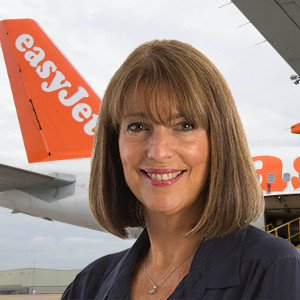 Carolin McCall understood “service” to be a difference maker. Since her leave, very quickly they dropped from my “role model” and preferred airline to “me too”. Taking over aircraft from Air Berlin with additional and “bulkier” seats, I suddenly experienced less leg space. Their airport manager at one of their hubs found himself quickly “obsolete”, the new paradigm being “cost savings”. In turn they seized my (half-sized) cabin bag due to “full overheads”. Aside the seat next to me being empty, there was more than enough space below the seat. Heard meanwhile from many frequent flyers they no longer wait if they have an aisle seat but make sure they have their seat and the cabin baggage with them. Would be indeed interesting to have some statistics how that impacts boarding time.
Carolin McCall understood “service” to be a difference maker. Since her leave, very quickly they dropped from my “role model” and preferred airline to “me too”. Taking over aircraft from Air Berlin with additional and “bulkier” seats, I suddenly experienced less leg space. Their airport manager at one of their hubs found himself quickly “obsolete”, the new paradigm being “cost savings”. In turn they seized my (half-sized) cabin bag due to “full overheads”. Aside the seat next to me being empty, there was more than enough space below the seat. Heard meanwhile from many frequent flyers they no longer wait if they have an aisle seat but make sure they have their seat and the cabin baggage with them. Would be indeed interesting to have some statistics how that impacts boarding time.
So what’s your USP? Price? Okay Mr. O’Leary… But what’s an LCC? Ryanair flies into the big airports recently. That’s another story I plan to address in the new year. So again, what’s your USP? How can you secure that people buy your product, that it’s not simply exchangeable with some cheaper airline? Back 35+ years, my boss in whole sale told me: “There’s always someone cheaper.” And several years later, the boss of “low cost airline” Continental Gordon Bethune said:

Interesting enough, in my recent qualification in Online Marketing, P.R., I learned the same values being valid in the online world. Nothing new. What’s your USP? Know your Strengths, Weaknesses, Oportunities and Threats – internally and externally and build your business case. Then you come to your own USPs. And you will likely not invest into some airlines with a few aircraft. Or into aircraft owners with a few A320 or B737 aircraft they try to place in a sated market. If you’re an investor (or know such), send them over to Kolibri.aero ツ
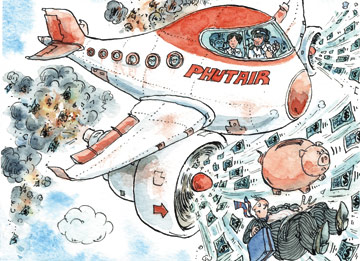 As mentioned above and before and again. I usually don’t believe in the survival of virtual airlines. A few leased aircraft of the same kind than their competitors, outsourced IT, ground handling, maintenance and other “services”, often even the call and service center (to “GSAs”). Then they believe to be competitive to the large players. If you operate in an un- or under-served market, you may be able to ask for the higher ticket prices required by your increased cost levels. Most airlines I see trying to take off or change their business to survive try to compete to the large network and low cost carriers, but without a secure market (using the same aircraft).
As mentioned above and before and again. I usually don’t believe in the survival of virtual airlines. A few leased aircraft of the same kind than their competitors, outsourced IT, ground handling, maintenance and other “services”, often even the call and service center (to “GSAs”). Then they believe to be competitive to the large players. If you operate in an un- or under-served market, you may be able to ask for the higher ticket prices required by your increased cost levels. Most airlines I see trying to take off or change their business to survive try to compete to the large network and low cost carriers, but without a secure market (using the same aircraft).
Aviation – and the dying continues … Look at the fleet, at complexity at size and type. Do they have spare(s) in case of disruptions? How much do they fly (make money)? Look at the pricing model and if that reflects the higher CASK. I’ve not seen a single failure in the past years that was not clearly a result of those common causes.
Food for Thought
Comments Welcome!

It is with serious regret that I just learned (a little delayed) about the retirement of Karl Fisch, author of the first ever YouTube video that went viral having a lasting impact on my life. It became the first ever thing I blogged, when I moved over the first articles I wrote elsewhere to the FoodForThought-blog: Shift Happens Narrated. The post contains a short summary of what led to the story, it is the most-read post on my blog ever and keeps being read 5-10 times every months.
Three years ago, Karl wrote an article on his blog I recommend reading; The Shifty Years.
I hope you understand the respect when I quote another famous author for the farewell. May life treat you and yours kindly!
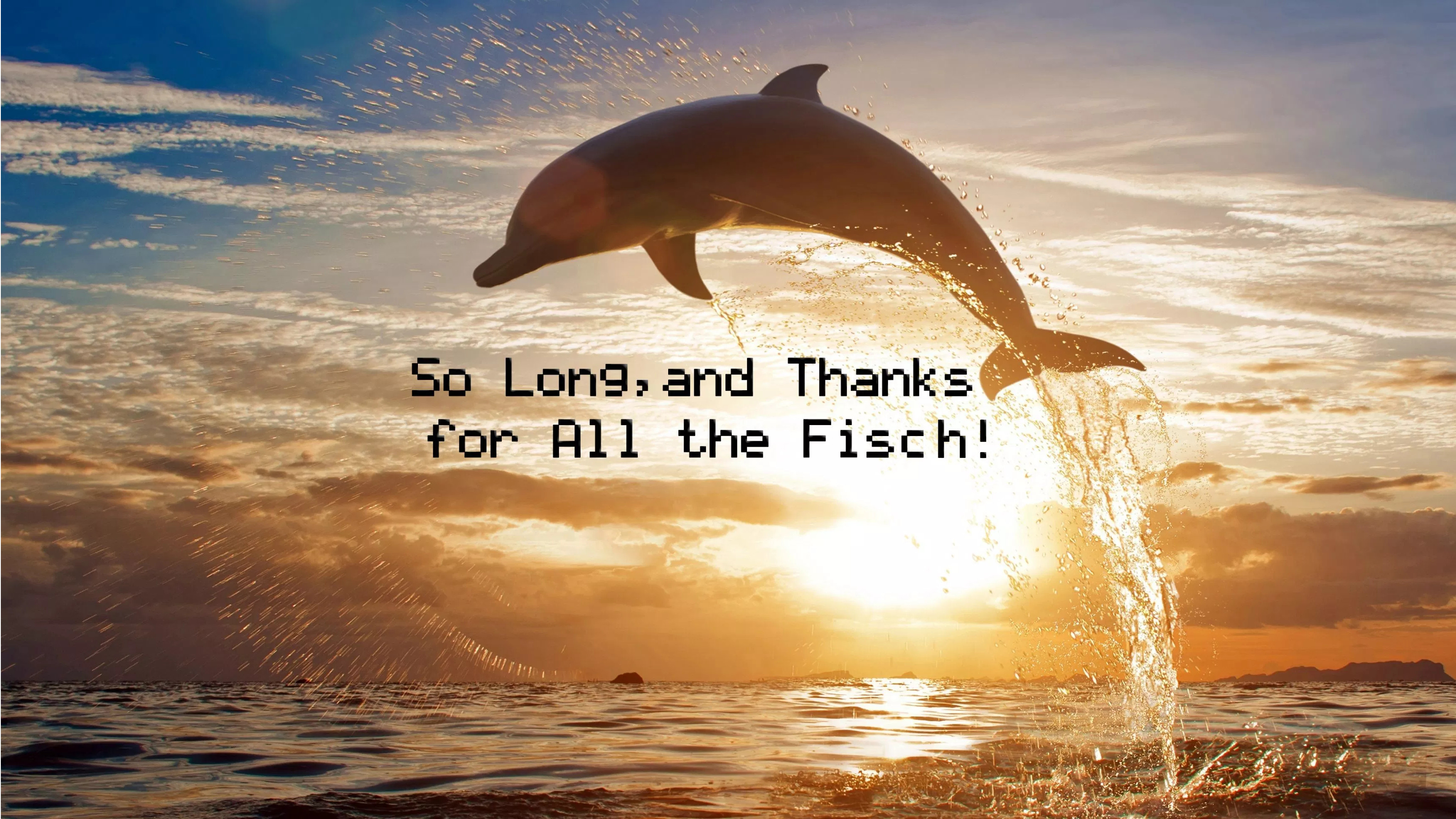
So Long Karl … Thanks for all the Fisch … And I hope it’s not the last I’ve seen of you! Shift Happens.


Working this week with a group on topics like P.R. and Corporate Strategy, there are some basic rules, again resurfacing on my conscious thinking…
Two topics were in hot, heated discussion these days, especially when we talked bout Cognitive Disonance: Greta Thunberg and Boeing 737MAX.

Not only in the big cities around the globe, also in towns like Brunswick (Braunschweig), the movement Friday for Future is a root movement. Following the example of a little girl from Sweden, kids go demonstrating around the world to promote the need to counter climate change. In Germany, formerly pacemaker of “green development” the government is way behind their own targets, let’s not talk about the Paris world climate targets. In Tirana, the city “stinks” from car gasoline fumes. Scientists believe it’s not five to, but five after twelve already! We can only reduce the impact, no longer avoid it.
So now, surprise surprise, that kid in Sweden went on the street to demonstrate against the political powers that be (PTBs) ignorance. That action triggered a cord and other kids around the world thought it a good idea and joined in the demonstration. Demanding action to secure their future. And all those PTBs can respond with is that they’d be truants? Their only reason to go on the streets is to be skipping school? That’s all you can come up with? Sure there are the one or other camp-followers, but mostly those kids have genuine concern about their planet.
But their activity provides a good example for cognitive dissonance. They put a finger in a wound that most of “us” adults have long found our way to suppress. Because the information does not compute. We know we kill the planet, but let the others start saving it. What can I do?
My personal answer is to support the kids. To not “look away” and “blame the others”. In German history, our people looked away, the blamed others. It caused a holocaust.
Michael Jackson sang about “The Man in the Mirror” to make a change.
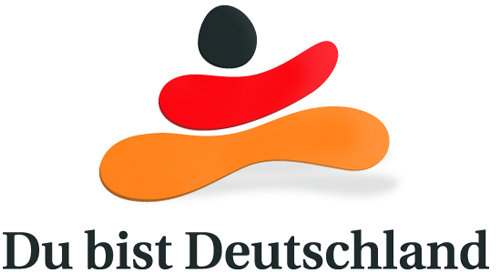 In Germany we had a barrel-burst campaign “You are Germany” – what do you do to make things better?
In Germany we had a barrel-burst campaign “You are Germany” – what do you do to make things better?
Interesting, what discussions are triggered, discussing cognitive dissonance resolution and how different nationalities and cultural background result in totally different approaches. In Germany, a typical approach is to dissect good ideas and find faults. Can’t tell you, how many “friends” in the past year told me that KOLIBRI.aero cannot work. It did very often remind me of that favorite quote by Lazarus Long (a Robert A. Heinlein character): “Always listen to the experts! They tell you it is impossible and why you can not do it. When you know that: Go Ahead!
Another very good example and discussion topic this week about cognitive dissonance resolution was the Boeing B737MAX.
Our industry always promotes Safety First. But I have a lot of examples that our industry works on the limits, hoping for the best. Be it my recent post about disruption management or the managing of airport turnaround (A-CDM), we all know that we do not work efficiently. But cognitive dissonances often result in ignorance, suppressing conflicting information. We know the truth, but we suppress it, give ourselves explanations to justify the shortcomings.
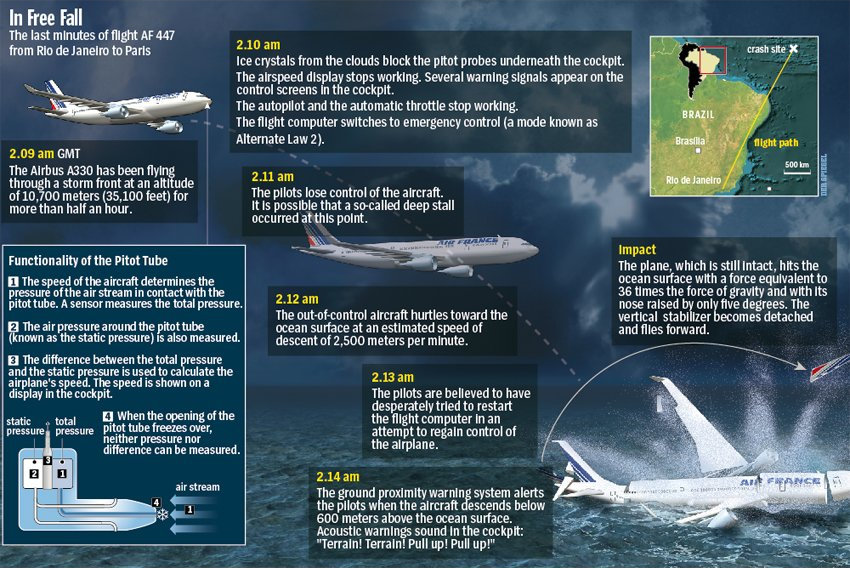 Now there was another crash of the Boeing B737MAX after Lion Air Flight 610 crashed in Malaysia half a year ago (29Oct18). While there are also “supporting reasons”, as usual a chain of events that leads to disaster, I personally believe it was mainly the ignorance of Boeing engineers, developing an MCAS, not informing pilots about such an important design change. Combined with a semi-religious faith in their technology. But I believe computers are there to assist us. I remember the Air France flight 447, where the instruments showed wrong data, switched off the computer, in result the flight stalled and crashed into the the Atlantic. We also should be reminded about the “unsinkable” Titanic.
Now there was another crash of the Boeing B737MAX after Lion Air Flight 610 crashed in Malaysia half a year ago (29Oct18). While there are also “supporting reasons”, as usual a chain of events that leads to disaster, I personally believe it was mainly the ignorance of Boeing engineers, developing an MCAS, not informing pilots about such an important design change. Combined with a semi-religious faith in their technology. But I believe computers are there to assist us. I remember the Air France flight 447, where the instruments showed wrong data, switched off the computer, in result the flight stalled and crashed into the the Atlantic. We also should be reminded about the “unsinkable” Titanic.
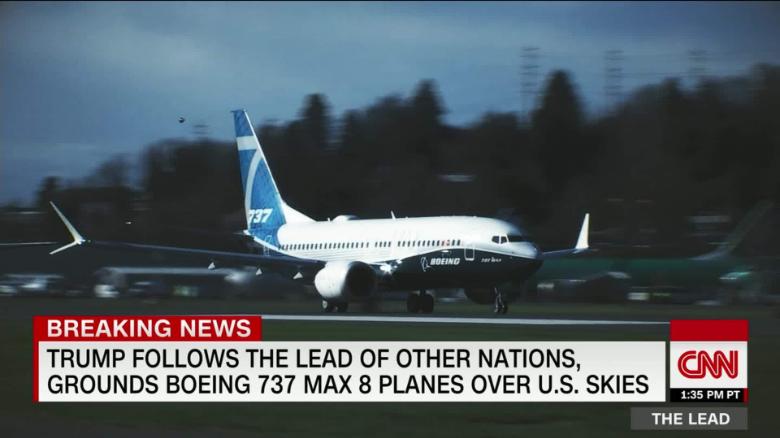 After the recent crash in Ethiopia, there were calls for grounding of the aircraft instantly, given the similarity to Lion Air 610. It is noteworthy and was discussed very controversial, that our own minister responsible for aviation voiced against a grounding, only to be overruled by EASA. But neither America, nor Europe responded “safety first”, but focused on the commercial impacts of a grounding instead. Meanwhile even the U.S. under Donald Trump confirmed the necessity of the grounding and aviation sources expect that grounding to take on for several month. Which does remind again of the pioneer in jetliners, the de Havilland Comet, loosing three aircraft in nine months, which lead to understanding of metal fatigue on the air frame called by the way the metal was connected using bolts – creating micro-fractures.
After the recent crash in Ethiopia, there were calls for grounding of the aircraft instantly, given the similarity to Lion Air 610. It is noteworthy and was discussed very controversial, that our own minister responsible for aviation voiced against a grounding, only to be overruled by EASA. But neither America, nor Europe responded “safety first”, but focused on the commercial impacts of a grounding instead. Meanwhile even the U.S. under Donald Trump confirmed the necessity of the grounding and aviation sources expect that grounding to take on for several month. Which does remind again of the pioneer in jetliners, the de Havilland Comet, loosing three aircraft in nine months, which lead to understanding of metal fatigue on the air frame called by the way the metal was connected using bolts – creating micro-fractures.

Now Boeing implements a new technology to cover up for the new behavior and instead of being transparent, they hide. Then the sh** hits the fan in Malaysia. The event now shows that Boeing did not operate “safety first”, but mismanaged it by delaying the necessary update. A result of cognitive dissonance resolutions? It must not be, so it is not? That backfired now and is a rather pathetic expression of professional disaster management. That the U.S. and Boeing had to be “convinced” to ground the aircraft has proven a big mistake. Today, the media reports that the Ethiopian officials confirm a very similar situation and “many parallelisms” to the Lion Air crash.
We cannot and must not operate on the Principal of Hope! An airliner recently posted that we need a crash to change something. I disagreed, but Boeing did itself and our industry a major disfavor to the reputation of aviation safety. Media today also refers back to the 787-incidents and grounding resulting from batteries catching fire. What I do not understand is that following Lion air Boeing P.R. obviously did not develop a “worse case communication plan”.
It must not be! It cannot be! So it is not.
Cognitive Dissonance Resolution at work…
Food for Thought
Comments welcome!
![“Our Heads Are Round so our Thoughts Can Change Direction” [Francis Picabia]](https://foodforthought.barthel.eu/wp-content/uploads/2021/10/Picabia-Francis-Round-Heads.jpg)

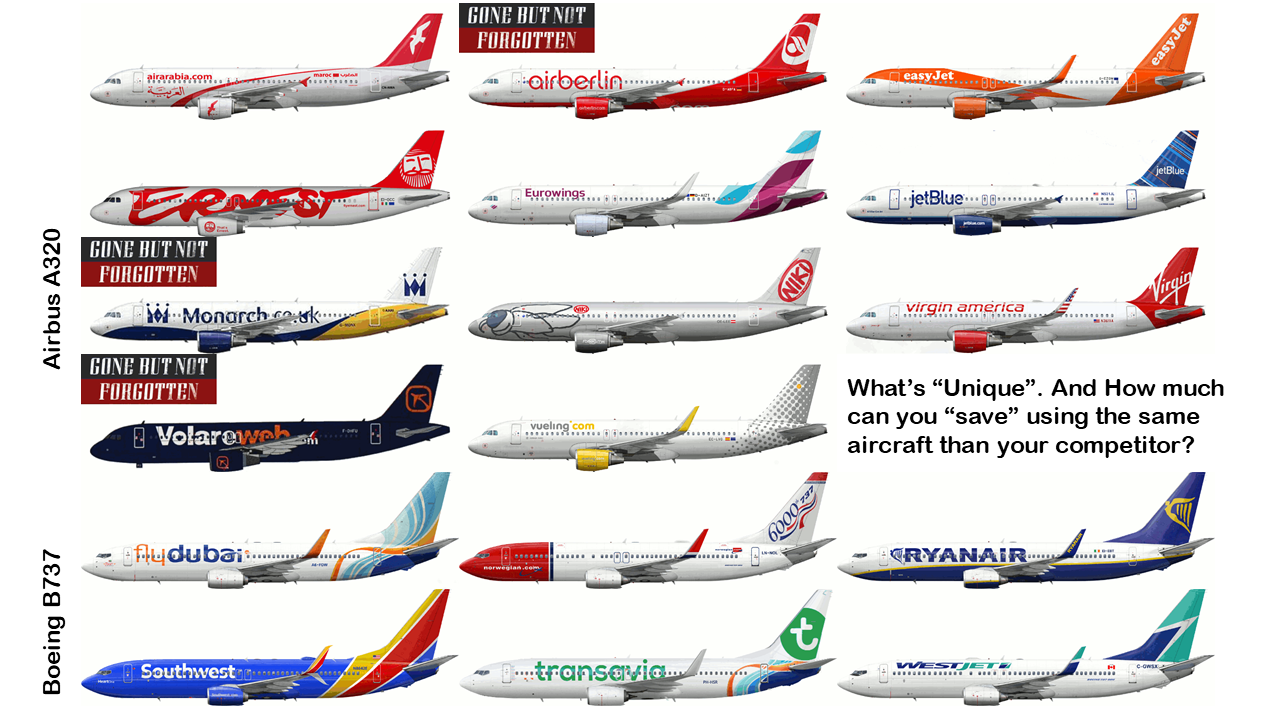
While we work here on a business plan for a new airline, we did discuss and disqualified many of the existing airline models. Is that negative? Or realistic?
These days some news hit me in short succession, that make me rethink the assessment my friend Ndrec and I made when discussing possible, viable business models for a new airline.

I did the picture above a mere year ago. Meanwhile Niki is gone too, as is Virgin America. Mighty Norwegian being said to be likely acquired by IAG shortly. We have “new” players like Blue Air. But the question for any new business case must be:
What is Your (E-)USP?

Now Ray Webster, former CEO of easyJet opened the Routes Europe Conference with a keynote:
“I don’t see long-haul low-cost as a viable model. Operating a small aircraft across the Atlantic is not efficient, and low-cost carriers aren’t going to fill a 787 or an A380”
Ray Webster, former CEO easyJet
Even students traveling on longer flights do want more services the longer the flight gets.
In contradiction to that assessment, Eurowings now opens up New York-services, taken over from the late Air Berlin operating from Düsseldorf. We all looked at Norwegian, though their “success story” also seemingly was bought on the cost of revenue, the airline now is said to be acquired rather shortly by British Airways/Iberia holding IAG (also owning Aer Lingus).
Whereas I simply do not understand the “brand strategy” of either Lufthansa or IAG…
The work on a business plan for a new airline was triggered last year initially by some investors, going down the same “me-too”-dead end using old, inefficient Boeing 737-aircraft. Cheap to get, but their fuel consumptions renders them virtually useless.
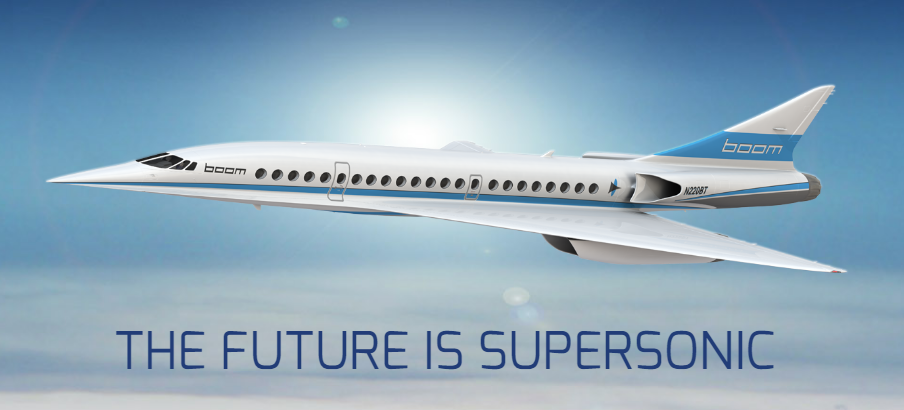 BlueSwanDaily believes in the future of Supersonic… Are you kidding me? Yes, I believe supersonic will come, but expensive niche for the rich and wealthy. No real change to the Concorde business model.
BlueSwanDaily believes in the future of Supersonic… Are you kidding me? Yes, I believe supersonic will come, but expensive niche for the rich and wealthy. No real change to the Concorde business model.
 I myself worked out a “green” concept a few years ago, but we’re neither getting there… The project got grounded in the wake of Lehmann Brother’s and a world financial crisis and the original interested investors gone never took up speed again. [Update: The Korean Wingship seems a ready-to-go WIG, though using conventional fuel, no green hydrogen or battery powered e-engines]
I myself worked out a “green” concept a few years ago, but we’re neither getting there… The project got grounded in the wake of Lehmann Brother’s and a world financial crisis and the original interested investors gone never took up speed again. [Update: The Korean Wingship seems a ready-to-go WIG, though using conventional fuel, no green hydrogen or battery powered e-engines]
So we looked at models that differ from the existing ones. Where are unservered or underserved markets and why are they not served well? One issue sure is the airline analysis tools misleading their users to “established routes” and airports.
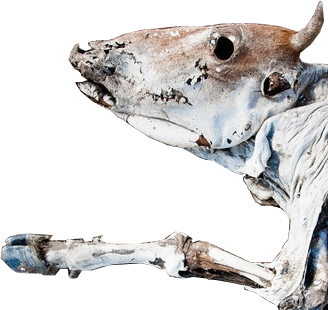
So we started with the original intent of a small scale operation. And recognized why so many such projects are doomed. There is a pilot shortage hovering on the horizon, Ryanair running pilot acquisition as far as South America and Asia. Most airlines do not value their workers but drain them.
And having discussed the very same issue again yesterday with friends who must relocate in the automotive industry as a direct consequence of overpaid managers, back again, using old images:
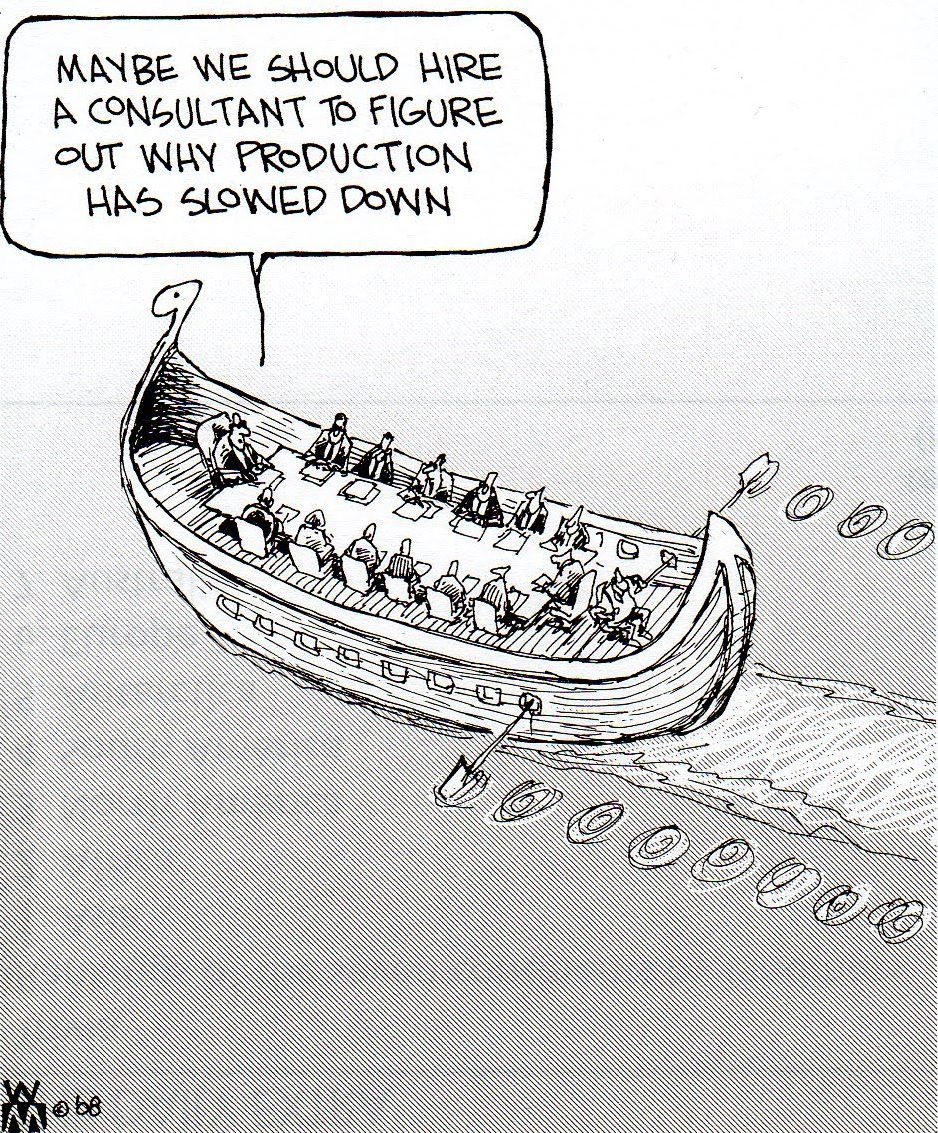
Maybe. Just maybe. I believe Ndrec and I came up with a sound business idea, which requires far higher investment than we originally envisioned. Coming with a round and sound business plan paying off that major investment in 10 years safe. Because we do have a unique selling proposition (USP). Because we do have an emotional USP. Because we thought it through and instead of failing at the first obstacle, we save cost from day one and make this a company to work for?
And working on that, we learned a big deal about the faults of the airlines we see in the market. And it boils down to the normal questions: What’s your (emotional) USP? What makes you different, why should the intended consumer decide to use your product. We see too much “me too” in the market. Buy your market share in the B737/A320 shark pond?
30+ years ago, my training officer told me that joke:
A man starts a business selling screws.
His friends questions him: “You buy
the screws for 1 €, you sell them for 95c?
How do you want to make money?”
“Oh, the quantity does it!”
My training officer told me to look after yours. Not only in the company, also your supply chain. Make sure you have long-term suppliers selling you the quality you need for a good reputation.
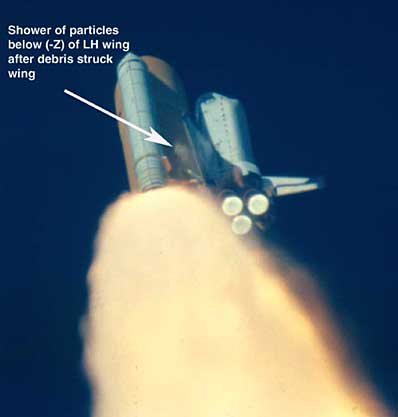 Later I learned the same lesson from space shuttle Challenger, management ignoring their own experts warning them of the temperature being below safety specifications. Shuttle Columbia dying of a piece of foam worth a few cent perforating the heat shield. Of Concorde crashing from a “minor” piece of scrap metal.
Later I learned the same lesson from space shuttle Challenger, management ignoring their own experts warning them of the temperature being below safety specifications. Shuttle Columbia dying of a piece of foam worth a few cent perforating the heat shield. Of Concorde crashing from a “minor” piece of scrap metal.
I’ve paid very high (in hard Euro) for another lesson. Starting with a sound idea (regional airlines’ franchise concept to share cost and operate a larger scale of operations), it turned out later that the stakeholders did not look for a franchise, but a means to start their own small operation and “share” the cost with the other small players. Clearly understanding the small operations to face obstacles they cannot overcome on their own. Could not. Cannot. Will not. A costly mistake I made. But lesson learned!
Then at delair I learned about airline disruptions and how our industry uses historic processes to “manage” somehow. How airlines use manpower instead of intelligence to cope i.e. with a winter storm.
With Ndrec, I found a seasoned manager understanding the need to either do it right – or don’t do it. And we got surprised how much money we save if we do it right! Not short term, there we need more to invest. But then very shortly, within less than 10 years. Now we reached the point of the reality check: Will we find solvent institutional investors helping us to pull this off? Cross your fingers.
For all those other airlines out there… Do your homework. First and foremost: What’s your USP? What’s the business case?
Food for Thought
Comments welcome

These weeks I am most disturbed, how U.S. President Trump keeps pushing commerce above life. I can only hope that the world stands united up to him.
Just a few headlines that hit a nerve with me:
“Donald Trump slashes size of national parks in Utah to allow drilling” [Telegraph UK]
“Native Americans to Sue Trump Over National Monument Downsizing” [Voice of America]
“How Trump’s Declaration Inflames a Middle East Already Ablaze” [Mintpress]
“A Brief History Of Donald Trump Stoking Islamophobia” [Huffington Post]
“US: Devastating Impact of Trump’s Immigration Policy” [Human Rights Watch]
“President Trump Calls for Ending Diversity Visa Lottery Program” [Time Magazine]
“Trump’s eldest son questioned in Congress about Russia” [Reuters]
“I’m a Multi-Millionaire So Trump’s Tax Plan Is Great for Me.” [Time Magazine]
“Trump Tax Plan Will Skyrocket National Debt” [Financial Tribune]
“What Will the End of Net Neutrality Do to America?” [Huffington Post]
“What Trump’s Latest Attack on Planned Parenthood” [Vogue]
“Commentary: The Hidden Victim of Trump’s Tax Plan: Your Health …” [Fortune]
All those developments show the excessive greed of Trump, not looking after “the small people”, but about his mighty, his rich friends and his own interests. The U.S. changing to support capitalism at all cost. Who cares? He doesn’t. And this is the head of the most powerful country in the world? While Obama enabled a social security for the poorest, Trump slaughters it. North Korea, Venezuela, Jerusalem, … in my opinion it’s only a question until Trump “wags the dog“. And that man holds that famous suitcase.
I also keep wondering about the U.S. Dollar as a “standard value”. We work on a European business plan, no link to the U.S., but I get quotes in US$, instead of local or Euro-currency, that we use in our calculations. One of the reasons, if not the reason for the U.S. to sustain such high national debt is the “Petro-Dollar” dominance. But that is more and more threatened. And U.S. aggressively enforcing their dominance. How much longer? With Trump isolating the U.S., adding more debt beyond (my) imagination, I predict more and more commerce to move from “US$” to bilateral currency exchange. Quo Vadis U.S. of America?
When I recently won the U.S. Visa in their annual lottery (another Trump target), I said I was not sorry, it couldn’t work out. Having grown up virtually on the premises of the famous U.S. 1st ID Fwd, “America” was a childhood dream. It never worked out. With Sonia having the pacemaker and me at that time recovering from a major surgery ,I likely couldn’t have afforded living in the U.S. under threat to life. And my American Dream is shattered into more pieces day by day. So today I keep it with Pink Floyd’s High Hopes:
![“Our Heads Are Round so our Thoughts Can Change Direction” [Francis Picabia]](https://foodforthought.barthel.eu/wp-content/uploads/2021/10/Picabia-Francis-Round-Heads.jpg)
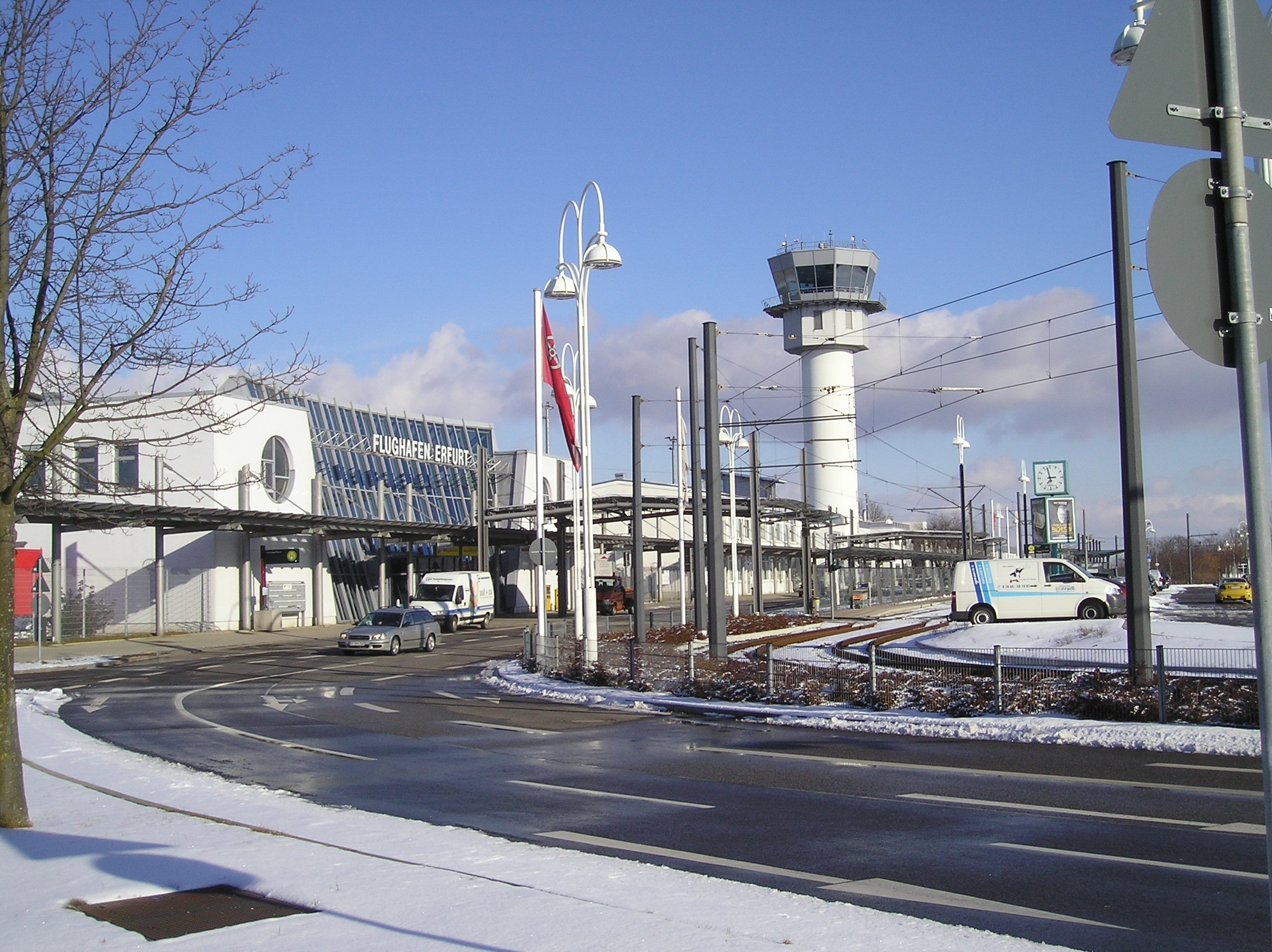 As many of the readers of this blog know, I am somewhat personally attached to that little airport in Central Germany, Erfurt-Weimar.
As many of the readers of this blog know, I am somewhat personally attached to that little airport in Central Germany, Erfurt-Weimar.
Last week I was taken into a discussion by Thuringia’s Minister President Bodo Ramelow, about how to stop the down-spiral of emigrating Thuringians. Which reminded me about the likewise discussion we had in 2009 shortly before I joined Erfurt Airport with the task to stop their downward-spiral on their passengers.
What I was faced with was an extremely negative image of the airport within the region. And a lot of demands on how to do business from amateurs in the industry, politicians, tourist offices, etc.
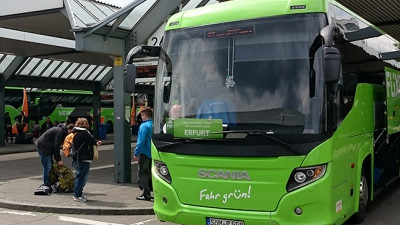 First day at work, the GM of Tourism Thuringia, Bärbel Grönegres was quoted in the local newspaper (TA, 02Mar09), having visited the United Arab Emirates to promote medical tourism to Thuringia. Having a Munich-Erfurt flight by Lufthansa-Partner Cirrus Airlines at the time, she recommended the Arabs to take a flight to Frankfurt, to be picked up with a bus for a +3 hour tour to Thuringia. Tourism material did not contain reference to the airport. Questioned about the reason, her reply was “Who knows, how much longer we will have that flight”. Ever since, that became a prime example I use for “negative thinking” or “calling for disaster”.
First day at work, the GM of Tourism Thuringia, Bärbel Grönegres was quoted in the local newspaper (TA, 02Mar09), having visited the United Arab Emirates to promote medical tourism to Thuringia. Having a Munich-Erfurt flight by Lufthansa-Partner Cirrus Airlines at the time, she recommended the Arabs to take a flight to Frankfurt, to be picked up with a bus for a +3 hour tour to Thuringia. Tourism material did not contain reference to the airport. Questioned about the reason, her reply was “Who knows, how much longer we will have that flight”. Ever since, that became a prime example I use for “negative thinking” or “calling for disaster”.
 The next winter, the Thuringian Olympic athletes brought home a record number of medals. But at the following ITB, it was more important to promote Franz Liszt, who lived a dozen years in Weimar. The fact that the Russian-Orthodox chapel, Grand Dutchess Maria Pavlovna who’s invitation brought him to Weimar has built and got buried in is under direct protectorate of the Russion Orthodox “pope”, the Patriarch, such making it a pilgrimage site for the Russian Orthodox church has completely failed to trigger any support by Weimar or Thuringia Tourism. Air Berlin reported it to be a “known reason” for a substantial part of their Russian Berlin-passengers to add Weimar to their travel plans.
The next winter, the Thuringian Olympic athletes brought home a record number of medals. But at the following ITB, it was more important to promote Franz Liszt, who lived a dozen years in Weimar. The fact that the Russian-Orthodox chapel, Grand Dutchess Maria Pavlovna who’s invitation brought him to Weimar has built and got buried in is under direct protectorate of the Russion Orthodox “pope”, the Patriarch, such making it a pilgrimage site for the Russian Orthodox church has completely failed to trigger any support by Weimar or Thuringia Tourism. Air Berlin reported it to be a “known reason” for a substantial part of their Russian Berlin-passengers to add Weimar to their travel plans.
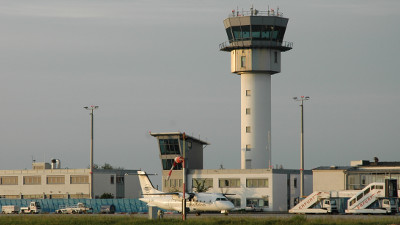 In order to promote the government-funded route, after fierce discussions, Cirrus Airlines agreed to offer a low-cost ticket at 99€ return, having only about 6€ after the high taxes on the ticket. That offer was made available especially to the Thuringian government offices and the state development agency (LEG). Nevertheless, LEG planned and executed delegations traveling with the train to Berlin to take flights from Berlin, instead of promoting the route. The same also for the ministries and ministers. Even the responsible minister taking flights from Frankfurt and Munich instead of using the PSO-route he signed responsible for. During the months we’ve actively promoted that 99€-fare also to the industry and the travel agencies and also had it largely available, not one of the flights used up the 99€ tickets allocated to them. Being at the verge of a bankruptcy, Cirrus Airlines finally ceased to operate that route in December 2010.
In order to promote the government-funded route, after fierce discussions, Cirrus Airlines agreed to offer a low-cost ticket at 99€ return, having only about 6€ after the high taxes on the ticket. That offer was made available especially to the Thuringian government offices and the state development agency (LEG). Nevertheless, LEG planned and executed delegations traveling with the train to Berlin to take flights from Berlin, instead of promoting the route. The same also for the ministries and ministers. Even the responsible minister taking flights from Frankfurt and Munich instead of using the PSO-route he signed responsible for. During the months we’ve actively promoted that 99€-fare also to the industry and the travel agencies and also had it largely available, not one of the flights used up the 99€ tickets allocated to them. Being at the verge of a bankruptcy, Cirrus Airlines finally ceased to operate that route in December 2010.
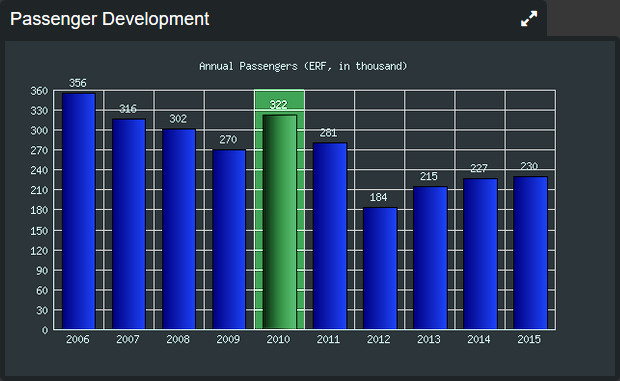 By the time, working with the local industry associations, political parties I have been able to increase the passenger numbers by about 20 percent. In fact, to date, the airport is far from the 320 thousand passengers I left them with. With Weimar being the neighboring but historically better known city internationally, I pushed forward the renaming to Erfurt-Weimar with the attempt to improve the incoming for the airport. Paid almost completely from the limited marketing budget. A strategic decision executed after our parting-of-ways in December 2010 after my two-year contract was not extended in the wake of the retreat of Cirrus Airlines. A strategic decision though made obsolete by the “political” decision by traffic minister Christian Carius to not replace the route as I recommended with an Amsterdam-service. Sad decision indeed, as with our parting ways, the discussions with KLM were simply discontinued (KLM calling my number reached someone speaking German only, I was gone) and despite their interest in a PSO (public service obligation) financial route support, we had discussed flights based on mere startup incentives and marketing support.
By the time, working with the local industry associations, political parties I have been able to increase the passenger numbers by about 20 percent. In fact, to date, the airport is far from the 320 thousand passengers I left them with. With Weimar being the neighboring but historically better known city internationally, I pushed forward the renaming to Erfurt-Weimar with the attempt to improve the incoming for the airport. Paid almost completely from the limited marketing budget. A strategic decision executed after our parting-of-ways in December 2010 after my two-year contract was not extended in the wake of the retreat of Cirrus Airlines. A strategic decision though made obsolete by the “political” decision by traffic minister Christian Carius to not replace the route as I recommended with an Amsterdam-service. Sad decision indeed, as with our parting ways, the discussions with KLM were simply discontinued (KLM calling my number reached someone speaking German only, I was gone) and despite their interest in a PSO (public service obligation) financial route support, we had discussed flights based on mere startup incentives and marketing support.
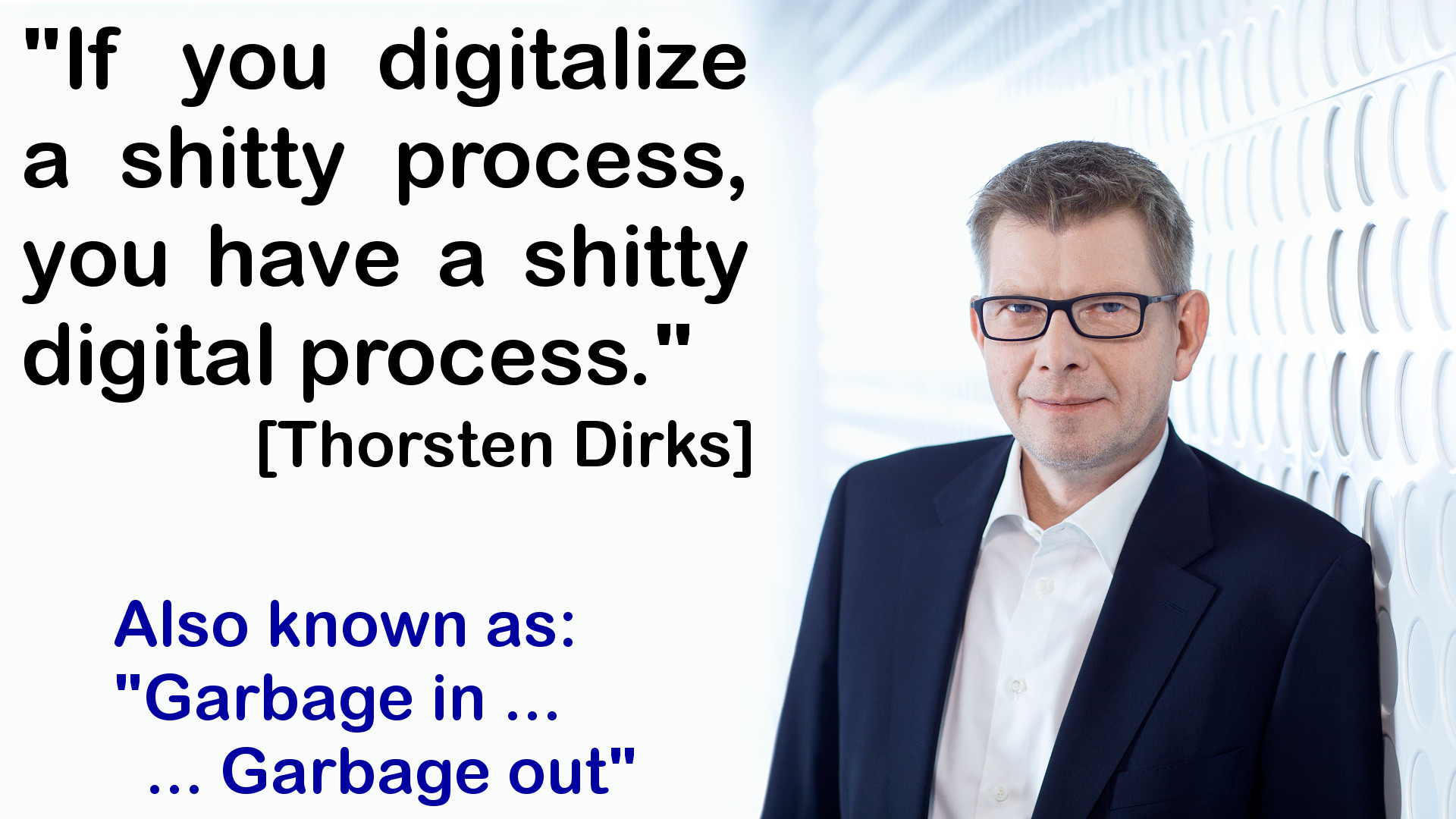 Opposing myself ongoing subsidies, to demand a route but to leave the (substantial) risk completely with the airline is neither the answer. Whereas comparing the CheckIn.com-data about airport catchment areas with the data provided by airports we found that data to be completely off-set in a majority of cases. It caused us to make basic data available for free. But if the data provided by the airport is not hard, but guesstimates or outright lies, when the airline starts a flight based on that data, the airline takes the risk. To not only does the airport sneak out of the responsibility, they increase the airlines’ risk – is that a game? Or serious business?
Opposing myself ongoing subsidies, to demand a route but to leave the (substantial) risk completely with the airline is neither the answer. Whereas comparing the CheckIn.com-data about airport catchment areas with the data provided by airports we found that data to be completely off-set in a majority of cases. It caused us to make basic data available for free. But if the data provided by the airport is not hard, but guesstimates or outright lies, when the airline starts a flight based on that data, the airline takes the risk. To not only does the airport sneak out of the responsibility, they increase the airlines’ risk – is that a game? Or serious business?

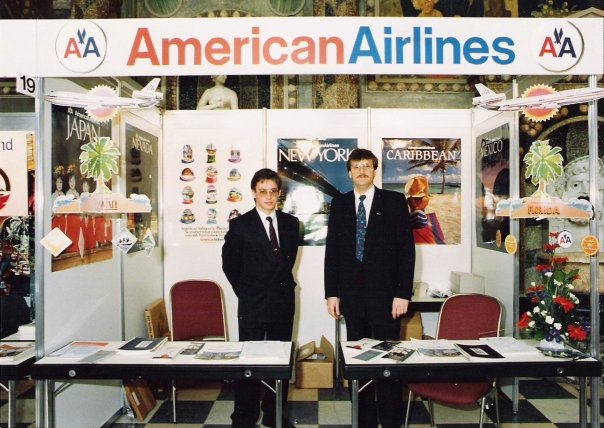 Now since I started in aviation 30 years ago, the market has drastically changed. In the good old days, there were (often highly subsidized) “national airlines”, used to promote the country. Back in my early days, the airlines were the executive for the tourist offices and also worked closely with commercial development agencies. But ever since, those national airlines have either adapted or went out of business. The emerging “low cost” airlines virtually evaporated the income of the airlines, competition becoming fierce.
Now since I started in aviation 30 years ago, the market has drastically changed. In the good old days, there were (often highly subsidized) “national airlines”, used to promote the country. Back in my early days, the airlines were the executive for the tourist offices and also worked closely with commercial development agencies. But ever since, those national airlines have either adapted or went out of business. The emerging “low cost” airlines virtually evaporated the income of the airlines, competition becoming fierce.
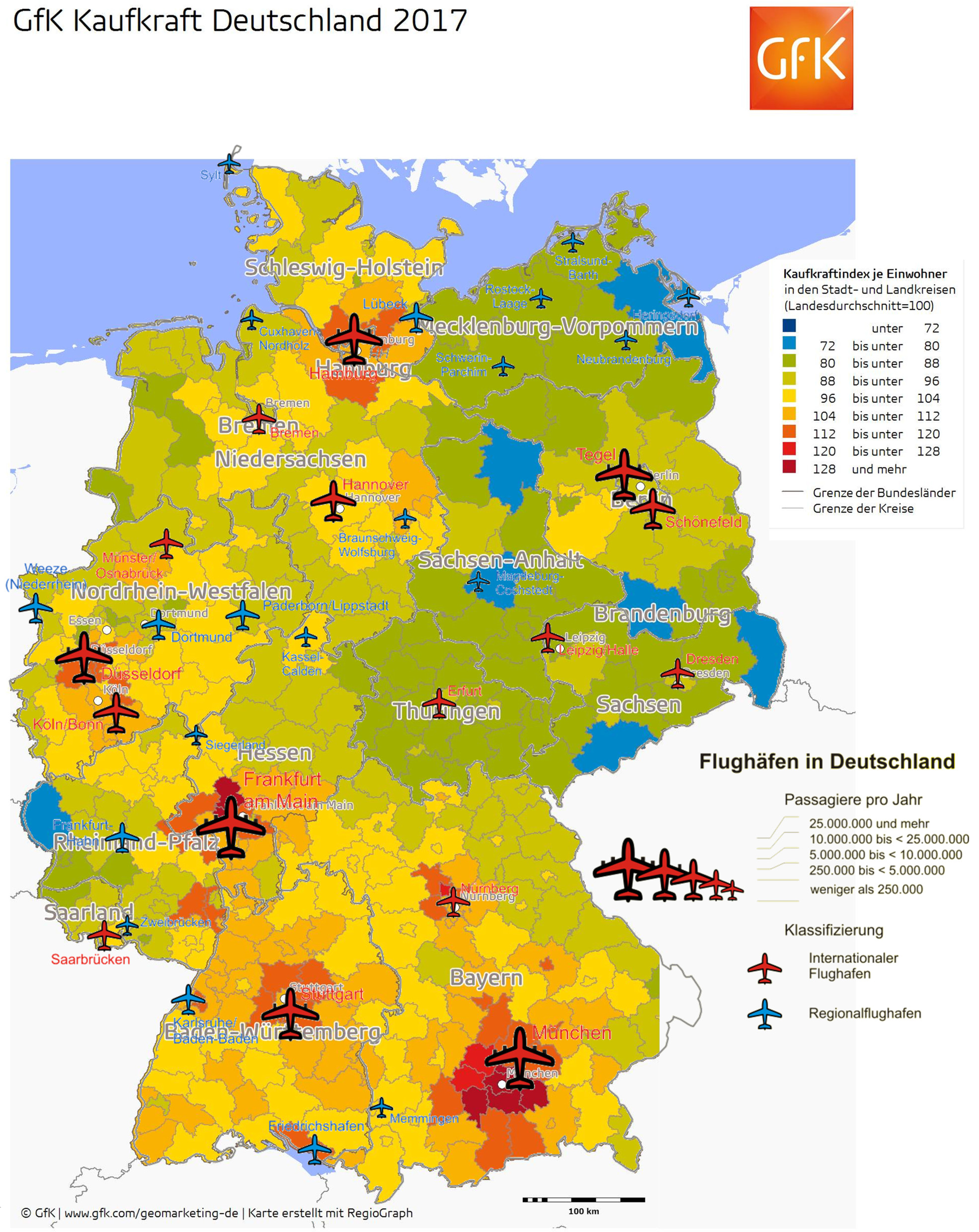 As I keep emphasizing with my updated image of Purchasing Power and Airports, there is a relation between a strong airport and the regional purchasing power. It is indeed a hen/egg issue, but if you are a small airport in a weak region, maybe it makes sense to consider how to attract travel (tourism, commerce) to your region. Not how to drain your region of the money by sending the population to the Mediterranean for vacation, but by having incoming, scheduled services, by adding point-to-point routes and to attract low cost airlines.
As I keep emphasizing with my updated image of Purchasing Power and Airports, there is a relation between a strong airport and the regional purchasing power. It is indeed a hen/egg issue, but if you are a small airport in a weak region, maybe it makes sense to consider how to attract travel (tourism, commerce) to your region. Not how to drain your region of the money by sending the population to the Mediterranean for vacation, but by having incoming, scheduled services, by adding point-to-point routes and to attract low cost airlines.
If we do not talk about PSO (Public Service Obligation) where the government pays for basic flight services, if you build an airport and wait for airlines to find you, keep on sleeping (and burning money). So if you are a small airport and you have little to no money, what can you do?
The airport is part of the region’s infrastructure. As such, it needs to be integrated into a political and commercial strategy. Whereas in the example of Erfurt-Weimar, the airport is being kept as a scapegoat, being challenged in one sentence for the aviation noise (a good joke with so few flights) and for not having flights. A political punch-ball.
Other, successful airports like Memmingen in Southern Germany are integrated into and understood as a strategic value for the regional development. In fact, Memmingen is not politico-owned but owned by more than 60 co-owners from the region’s industry. Such, instead of being a scapegoat for political power games, everyone in the region understands the need to actively support the airport. Anyone harassing the airport confronts everyone in the region. A political suicide!
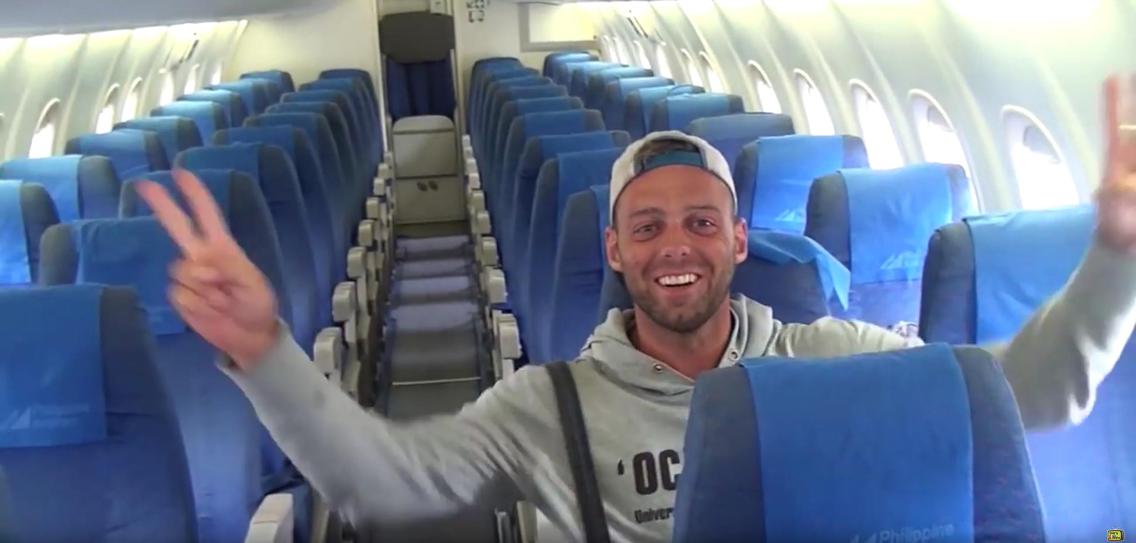
At Erfurt, I was asked to establish flights to Moscow. One company. 10 employees. Even with a small (expensive) 50-seat aircraft and weekly flights only (which are usually not sufficient for commercial demand), we talk about 40 seats by 52 weeks in two directions or 4.160 tickets to sell every year. But for a decent offer that is useful to the industry, you need at least twice weekly flights.
Leaving that task to attract airlines to the airport alone, at the same time running blame games and scapegoating, the airport cannot justify such flight. But what if the state development agency and the chambers of commerce, on demand by the political PTBs (powers-that-be) qualify the demand from all those small and midsized companies? Not on a low-cost, but with reasonable ticket prices. Not at prime time at the maximum risk for the airline. Maybe instead of a weekly, can the region sustain a double or even triple-weekly flight making it interesting for the companies in the region? Are those companies willing to support the launch period by committing to use the flight, even if slightly more expensive than a flight from Frankfurt or Berlin? Keep in mind, the people have to get there, you also pay for gasoline/parking or rail. Transport to those hubs is not free either. And the longer check-in times make them even less attractive, right?
Interesting approach. I’ve talked to several smaller airports where they agreed that their chamber of commerce and regional development agencies “pre-purchased” tickets at the cost of the average ticket price needed to cover the operational cost. Then they to sell it to their members. Not covering the full cost of operations, but simply taking their share of the risk! Why should they not, if they believe in the numbers and data they provide to the airline to promote their business case?

Then talk about Tourism. Given such flight, are the local tourism PTBs ready to promote such flight in the outlying region? What about other promotion? Don’t leave it to the airport! Is there a joint concept by the political PTBs, the state development and commerce PTBs, the tourism PTBs on what flight they want, how they will promote the flights?
“We have an airport”. That’s nice. But not enough.
And for a Minister President even only on a state level? You better think about a strategy. Or close down the airport. Having flight to summer vacation is not enough. It drains money from your region into those destinations. What’s in it for you? Why do you fund an airport? No scheduled services? No incoming? Do your homework.
It’s no longer the job of the airline to promote your region! They simply don’t have the funds to do that. It’s not their business case.
It is the job of the political, commercial and tourism PTBs to qualify what they finance an airport for and come up with ideas and business cases for airlines to take the risk to fly there. And no, a “business case” is not necessarily paying subsidies. If you have a good business case that the airline will make money on the route by flying paying passengers, I can rest assure you that the airline will prefer that over subsidies that are usually associated to political nightmares.
Compiling sound numbers is a good start… And yeah, I might be willing to help you with that.
Food for Thought!
Feedback welcome…